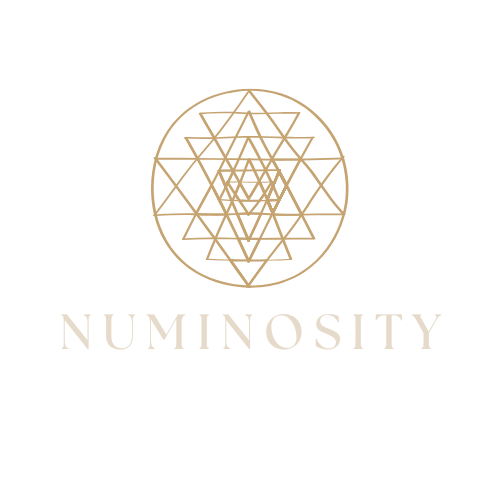The Five Gates of Grief: Understanding the Many Faces of Sorrow
Sep 11, 2025
The Five Gates of Grief: Understanding the Many Faces of Sorrow
Inspired by Francis Weller
We are all familiar with the various forms of grief that come into our lives, yet we often cannot fully articulate the complexity and depth of grief's ever-changing landscape. Grief is more than a series of emotions or processes that we need to 'fix' or 'get over' - it is an intrinsic and fundamental aspect of the human experience that connects us deeply to the sacred and the soul.
Many of us live an intricate and close relationship with grief, and despite attempts to deny this, we are collectively being drawn towards the inevitable need to come into relationship with the parts of ourselves that are submerged in the grief and trauma of our past and present.
Grief and sorrow accumulate and entangle themselves in the depths of our being. Many of us are familiar with a soul longing for authentic connection and deep belonging, which can never be fulfilled by the accumulation of material possessions or through the attempt to meet the societal expectations of what we 'should be'. There is a deep sorrow related to our severance with soul, and paradoxically, it is the depth of this sorrow that also enables us to hold a deep reverence for life, and brings awareness to the necessity of working with the emotions and energy of our shadow.
One of the gifts of being human is not only our ability to experience awe, gratitude and profound appreciation for life, but also to feel into the depth of our individual and collective pain and suffering. In times of crisis, we recognise that our intimacy with grief is a defining feature of our shared humanity. We feel an intense visceral urgency to turn towards and come into compassionate union with the grief and sorrow of the world, rather than trying to deny it, push it away or fix it. There is a need for us to stop and really listen to the collective grief, sorrow and trauma, and connect with it from the space of our hearts. This takes a huge amount of courage and an ability to recognise our shadow, as well as embrace the parts which we may find it easier to turn away from.
When we hear of grief, we usually relate it to bereavement or the loss of a relationship or significant other. Losing a loved one is a type of initiation into the world of the unbearable that changes us forever, and it is important that we learn how to give space to grieve these losses. We also need to explore the many forms of grief that lie hidden in the shadow, the grief we are not even aware of. This includes grieving the parts of ourselves we have disowned, processing the collective grief and sorrow for the loss and destruction of our world, and grieving a pervasive loss of connection and belonging to our ancestors and the sacred.
I have been deeply inspired by the work of Francis Weller and the concept of the five gates of grief (Weller, 2015). The five gates of grief are as follows:
-
Everything we love, we will lose
-
The places that have not known love
-
The sorrows of the world
-
What we expected and did not receive
-
Ancestral grief
These five gates offer language and a framework to make sense of the various grievances which are unexpressed and unacknowledged in our culture and society. They give voice to the grievances we may have experienced but have not been able to label in the past.

The First Gate: Everything We Love We Will Lose
The first gate speaks to the importance of us embracing and embodying the concept of impermanence and the inevitable cycles of life and death. We live in a society that clings to life and the desire to constantly maintain a state of positivity. We are expected to always be okay, thriving, growing and expanding ourselves and our place in the world. We enter into relationships, careers and ways of life with the false assumption that it will be this way forever. We rarely wake up each day with the awareness that everything will inevitably end. This inability to connect with the concept of impermanence results in us lacking appreciation for what we have in the moment, unable to embrace gratitude for the essence of life or fully grieve when something comes to an end. It is said that gratitude and grief go hand in hand (Welwood, 2013).
The Second Gate: The Places That Have Not Known Love
The second gate is the places that have not known love and relates to a grief that we carry because of the parts of ourselves we have denied, pushed into the shadow, or exiled. These parts are often our inner child, wounded and shamed, which we attempt to hide or suppress out of fear of disapproval or rejection. We unconsciously grieve the loss of these parts of ourselves daily. This is one of the unspoken types of grief at the core of our individual and collective suffering, for when we are disconnected from parts of ourselves, we are also in a state of disconnect from others and the world.
This gate also relates to the experience of individual and collective trauma. Traumatic experiences often overwhelm us, and when they do, our psyche may need to split off parts of ourselves as a way to cope or handle the experience. There is wisdom in the trauma response (Van der Kolk, 2005). However, in the long-term, it results in what is referred to in shamanism as soul loss (Ingerman, 2006).
Soul loss is the belief in shamanic and indigenous traditions that trauma or difficult life events cause parts of our soul to be lost, and it is important that we engage in rituals to retrieve these lost soul parts. These parts often carry aspects of our life force and power, and we must bring them back to reach a more integrated and whole sense of self. We need to learn how to embrace, nourish and extend compassion to the lost parts of ourselves. We cannot grieve what we feel is beyond our capacity to love, and it is through our grieving that we can begin to forgive and welcome home these lost souls.
The Third Gate: The Sorrows of the World
The third gate is related to the sorrows of the world and is about turning towards the grief we feel in regard to the loss of species, habitats, culture and tradition. This grief is continuing to accumulate and be shared by all of us. It is a grief we cannot simply ignore. There is a soul longing to live in relationship to the world, however we are collectively moving further away from this way of being, and it is this severance from soul which is causing this ache and sorrow.
Carl Jung (1875–1961) and indigenous traditions speak of a worldview in which everything consists of soul, and we live inside of soul, the anima mundi of the world. The greatest grief of our time is the fact that we have lost connection with this awareness and knowing. We think we are separate from the world and from soul. We extract and utilise the resources of the Earth as if it is something we can use merely for our own growth and development, and we do not live in relationship to the world in the way that indigenous cultures once did.
I have spent time in particular areas of the world where I have experienced a type of grief that has been difficult to put into words but relates to a sense of numbness and emptiness that stems from the apparent disconnect from soul. For a while, I was perplexed at this numbness and pain that would infiltrate my entire body, yet what if this is an example of the soul of the world weeping through us?
The Fourth Gate: What We Expected and Did Not Receive
The fourth gate refers to the grief of what we expected and did not receive. It relates to a longing to belong. It is a grief we feel for what we may not have even come into contact with, therefore it often occurs on a cellular or unconscious level. This grief relates to an innate need to come into this world and be met by the container of community, tribe or intimate connection to a group in which we feel we belong. Unfortunately, many of us come into this world without the experience of being met by a community of others, or we grow up in an environment in which there is isolation and disconnect.
It is difficult to articulate grief for something that we have never known or received. However, many of us experience it as a visceral discomfort or feeling that something is missing. This is often internalised and perceived as a lack, emptiness or flaw within the self, and leads to so many people attempting to fill this absence through drugs, alcohol or overconsumption of material possessions. It is often only when we are granted support or connection with a community that we begin to understand what is missing and what we are really searching for. When we turn towards this gate of grief, we are often confronted with an unfathomable sense of emptiness and loneliness. It takes a huge amount of courage to turn towards this emotional vacuum. This is where we need community and a strong vessel to be able to surrender to the vast grief contained within this space.
The Fifth Gate: Ancestral Grief
The fifth gate is related to ancestral grief. This is also a grief that is carried viscerally through our bodies and relates to intergenerational trauma. Often, we carry around a sadness or sorrow that is hard to identify, yet it relates to our family lineage. There are memories, emotions, and experiences that exist on a cellular level in our bodies and are passed from generation to generation. These emotions exist on a subconscious level, and it takes a particular awareness from an individual to recognise what trauma and grief is present within the family lineage. It then takes a huge amount of courage and calling to turn towards it so it can finally be healed or transformed.
Ancestral grief also relates to the collective weight we carry from the loss, abuse or pain of millions who have experienced genocide, slavery or war, the loss of culture, tradition and lives because of these atrocities. Another level of ancestral grief relates to the fact that we are disconnected from the lineage of our ancestors, which means we have also lost connection to our land, language, imagination, rituals, songs and stories, which leads to a lack of belonging or connection to something greater than ourselves. This grief requires us to reconnect with our forgotten lineage and the sacred connection that comes from our ancestors. Even if we do not know the exact lineage of our ancestors, we can energetically seek to connect with those who came before us.

It is likely that we can all relate to the five gates of grief, and it is incredibly helpful to give language to the types of grief we are experiencing, to make sense of the visceral sensations in our bodies. Giving language to the various forms of grief is particularly important, as it allows us to connect more deeply with these experiences and hold space for our individual and collective suffering.
References
Ingerman, S. (2011). Soul retrieval: Mending the fragmented self. HarperOne.
Weller, F. (2015). The wild edge of sorrow: Rituals of renewal and the sacred work of grief. North Atlantic.
Welwood, J. (2013). Perfect love, imperfect relationships. Shambhala Publications Inc.
Van der Kolk, B. (2015). The body keeps the score: Brain, mind, and body in the healing of trauma. Penguin Books.
